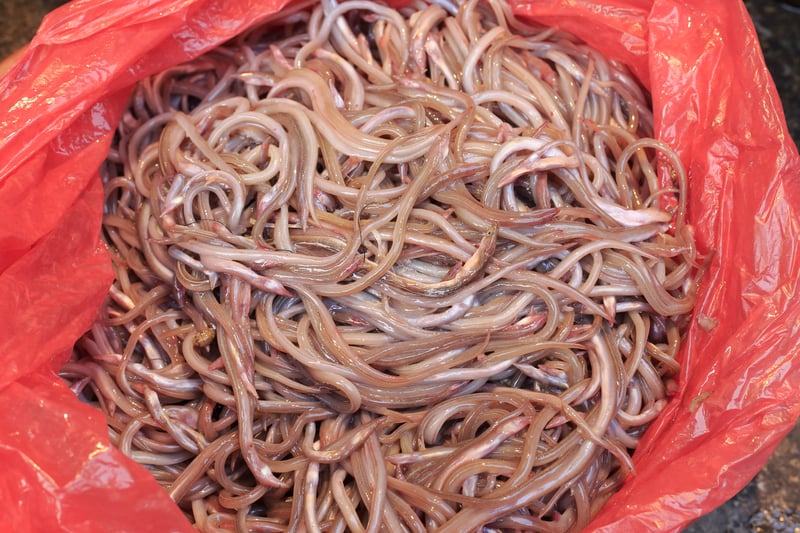SAN JUAN, Puerto Rico — Two Dominican nationals were sentenced this week for illegally harvesting and attempting to smuggle juvenile American eels, also known as glass eels, from Puerto Rico to the Dominican Republic. The operation aimed to profit from the international demand for the endangered species, which are highly valued in global markets.
On Nov. 14, U.S. District Court Judge Aida M. Delgado-Colón sentenced Simón De la Cruz Paredes, 56, to 24 months in prison and two years of supervised release. On Thursday, Saúl Enrique José De la Cruz, 39, received the same sentence in the U.S. District Court for the District of Puerto Rico.
Court documents revealed the pair spent months harvesting the juvenile eels in rivers near Levittown, Puerto Rico. The eels were kept alive using specialized oxygenation equipment while the defendants prepared a boat for the trip back to the Dominican Republic. On Feb. 21, they departed Puerto Rico with 30 kilograms of glass eels valued at $132,000, a handgun, and hundreds of rounds of ammunition.
The U.S. Coast Guard intercepted the vessel about 40 miles from Puerto Rico after the men refused to comply with an order to stop. Coast Guard officers disabled the boat’s engines and arrested the defendants, leading to their indictment under charges of wildlife trafficking, smuggling, and defying a lawful stop. Authorities noted that the eels could fetch more than $1 million on the market once raised to adulthood.
Juvenile American eels are a critical resource for aquaculture facilities, particularly in Asia, where they are raised for consumption in dishes like sushi. However, their populations have been depleted globally due to overfishing and illegal harvesting. “Juvenile or glass eels are key to this food production,” said Assistant Attorney General Todd Kim of the Justice Department. “Unfortunately, they are often illegally harvested, which has already decimated their numbers in Japan and Europe, and is now having a profound effect on the American eel population.”
The American eel’s life cycle makes it especially vulnerable to overfishing. The species is born in the Atlantic Ocean’s Sargasso Sea and migrates to freshwater systems, such as Puerto Rican rivers, to mature. Because the species cannot be bred in captivity, the juvenile eels, or glass eels, are heavily targeted for international trade.
The case was a joint investigation led by NOAA and the U.S. Fish and Wildlife Service, with assistance from the U.S. Coast Guard, Customs and Border Protection, and Puerto Rican law enforcement. Officials emphasized the need to protect the species and ensure compliance with wildlife protection laws.
“This illegal activity disrupts marine ecosystems and jeopardizes fair trade markets,” said Acting Assistant Director Paige Casey of NOAA’s Office of Law Enforcement. U.S. Attorney W. Stephen Muldrow for the District of Puerto Rico added, “The illegal trafficking of wildlife threatens the survival of many endangered species.”
The sentencing highlights the continued efforts of U.S. agencies to combat the exploitation of endangered species and protect the region’s natural resources.

